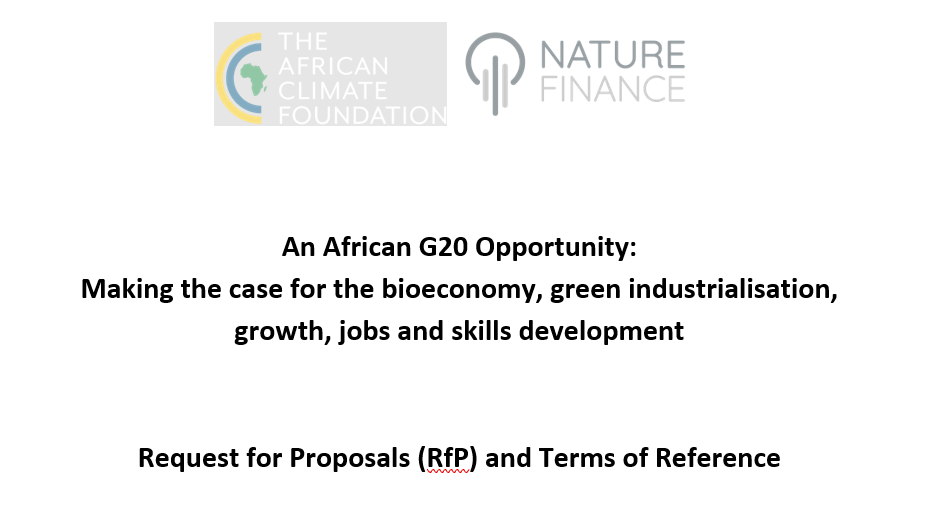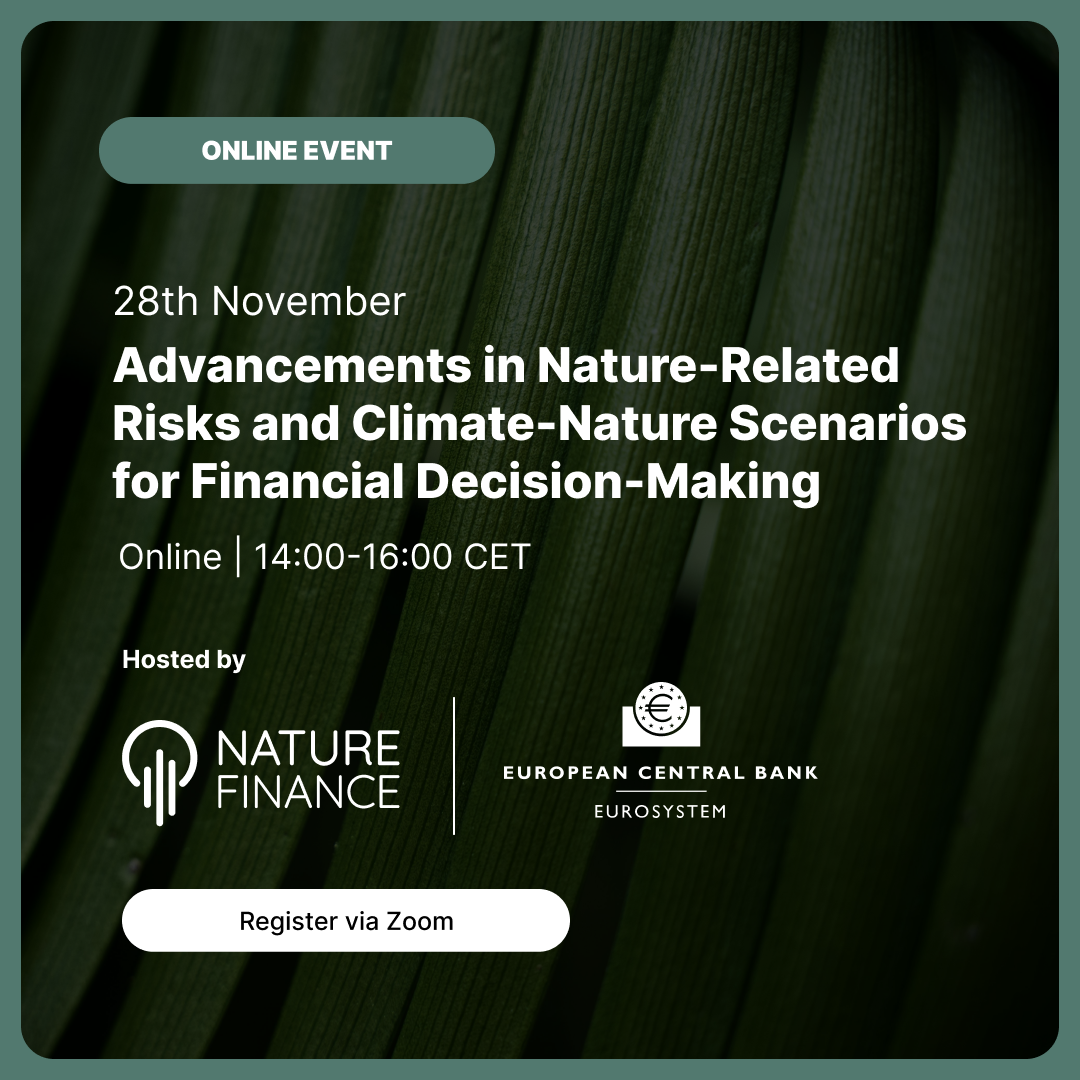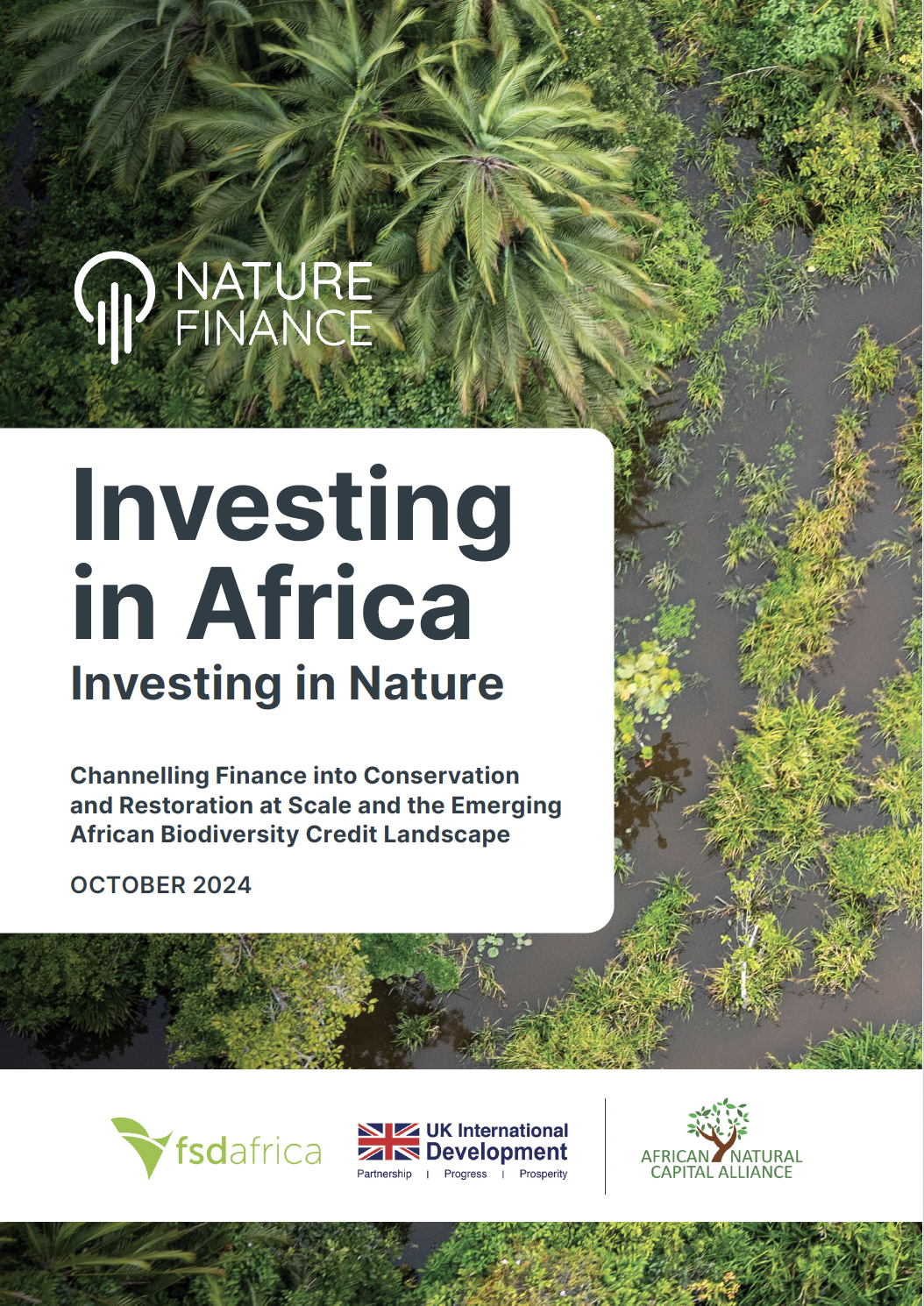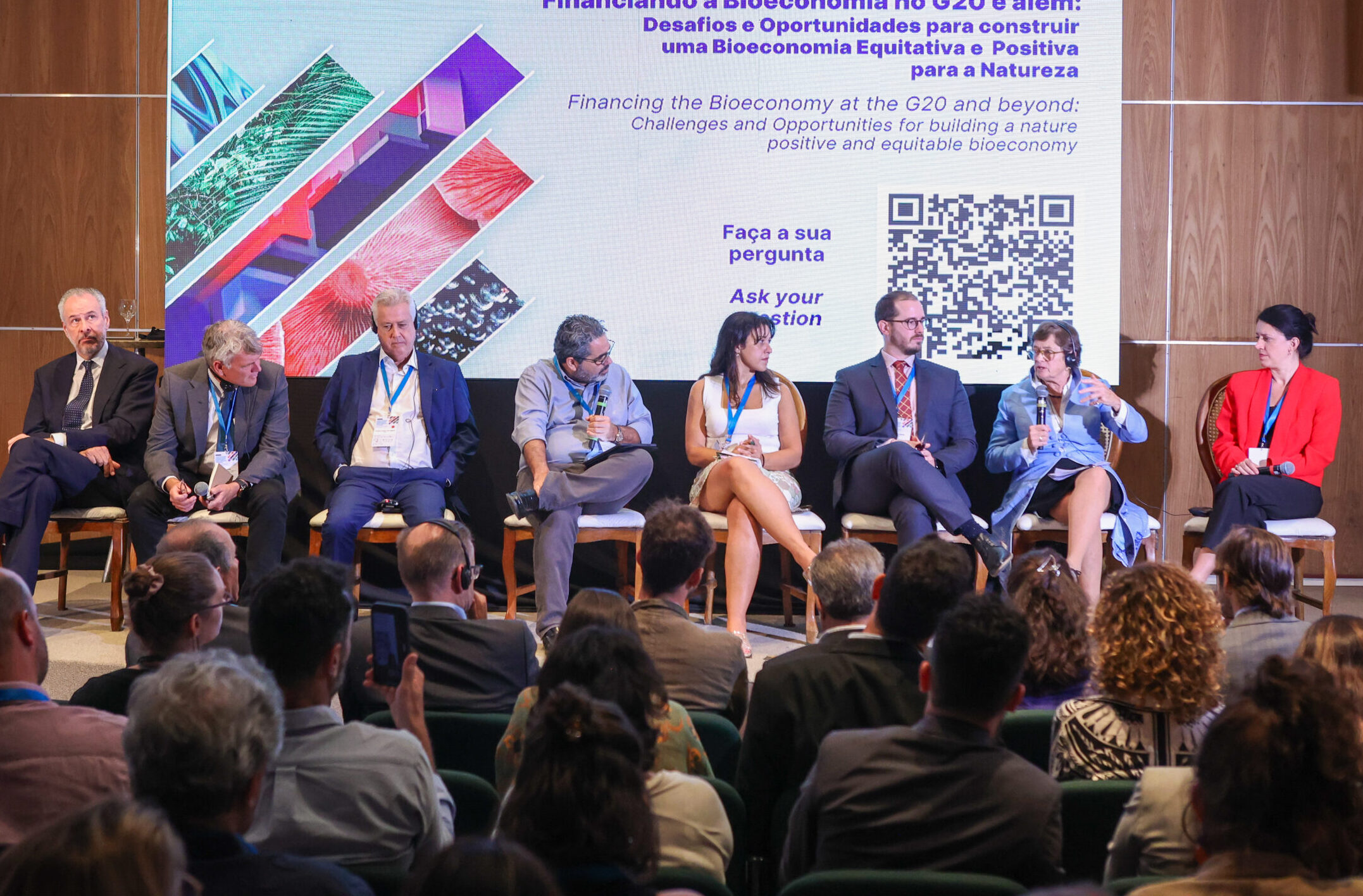The fifth edition of Building Bridges was held on December 9-12th, 2024, in Geneva. It brought together 70 events with 3000+ participants. Discussions focused on the need for bold and transformative actions to align global finance with shaping a more just and sustainable future.
At Building Bridges 2024, NatureFinance co-hosted, participated in, and engaged in a range of events that showcased new reports, frameworks, and collaboration opportunities to advance systemic solutions to the pressing global challenges of nature degradation, climate change and social equity.
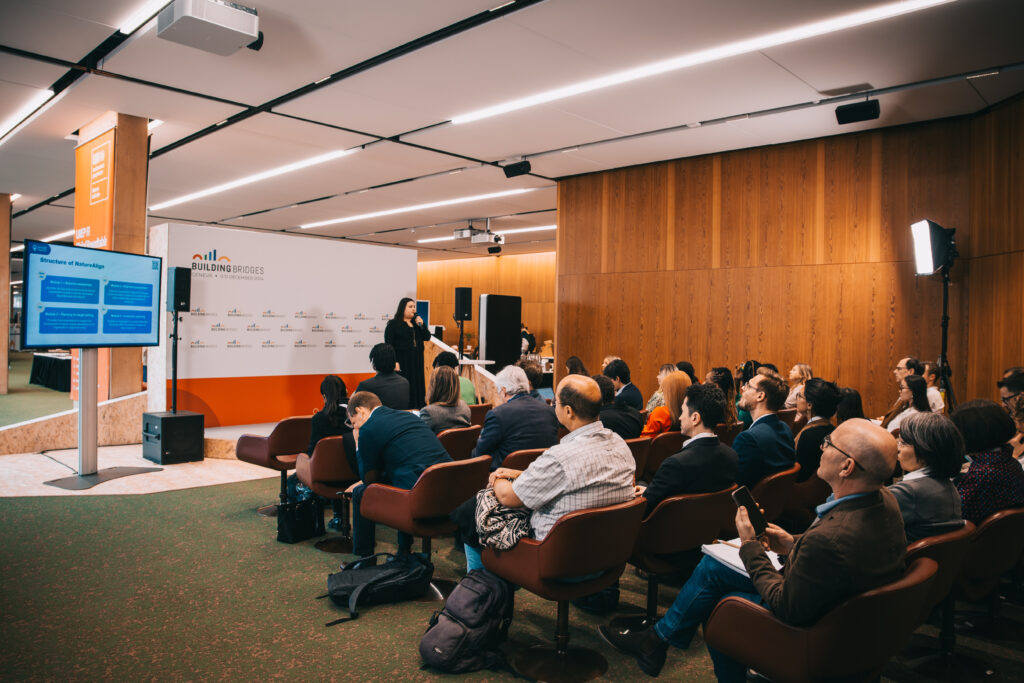
Key themes that emerged throughout the week
1) Integrating Nature into Financial Decision-Making
Experts from across the financial industry emphasised the importance of recognising the value of nature, and how cross-sector collaboration is vital for designing robust, scalable solutions that reconcile differing nature approaches. This included announcing the launch of the Swiss Global Hub on Nature Finance to demonstrate Swiss leadership in facilitating collaboration across finance, technology, policy and education on the nature economy.
2) A Just and Inclusive Transition:
Discussions highlighted that sustainable finance must ensure that the green transition is equitable and benefits all, particularly for vulnerable communities in the Global South. NatureFinance’s event with Itaúsa and the African Natural Capital Alliance showcased the potential role of the bioeconomy as a blueprint in countries such as Brazil and South Africa to foster more inclusive and nature positive outcomes.
3) The Urgency of Bold Action in a wildly disrupted climate world:
Speakers reinforced the need to explore transformative adaptation strategies, innovative investments, and new frameworks to address the risks of accelerating warming and to transition to a net-zero economy. In the context of discussions around a future beyond 1.5°C, NatureFinance launched a new report: ‘Futureproofing Food for a Rapidly Warming Planet.’
EVENT 1 – A New Era for Performance Measurement: Reconciling Diverging Views on Nature Valuation
Biodiversity and nature valuation hinges on collaboration. During the event with the Enterprise for Society Center (E4S), experts emphasised how valuing nature is a critical path to changing our relationship with nature.
Key takeaways:
1) With the rise of mandatory integrated reporting, it is becoming increasingly important for businesses and financial institutions to incorporate nature valuation into their financial reporting and decision-making processes.
2) There are challenges ahead, and the landscape is complex involving reconciling cost-focused accounting with price-focused economics, alongside the other varying social and environmental approaches to valuing nature.
3) Fostering cross-sector collaboration between scientists, policymakers, and finance professionals will be essential for designing robust, scalable solutions to nature valuation challenges.
“It is not about investing in nature; it is about investing in a nature economy that is nature-positive.” – Simon Zadek, Senior Advisor, NatureFinance
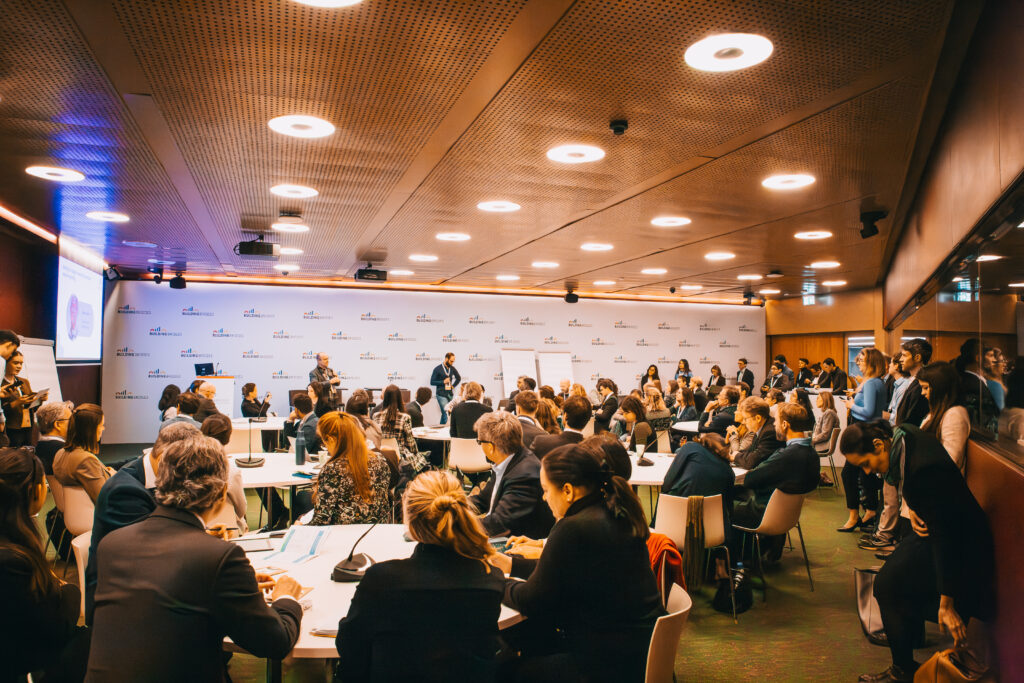
EVENT 2 – Planning for a Future Beyond 1.5°C
2024 is on track to be the hottest year on record as warming temporarily hit 1.5°C above pre industrial levels. As the world grapples with the risks of a rapidly changing climate, this session delved into planning for “Beyond 1.5°C” future which will require radical new approaches that are innovative and out-of-the-box to mitigate impacts, transform finance, and redefine policy and business strategies.
Key takeaways:
1) NatureFinance released our new report on ‘Futureproofing Food for a Rapidly Warming Planet’ stressing the need for advancing regenerative agriculture, disruptive food systems and alternative technologies to tackle climate-driven food insecurity.
2) There is a need to face up to and change how to respond to the the consequences of the interconnected nature of the crises of climate breakdown, biodiversity loss and nature degradation, as well as the risks of cascading effects threatening geopolitical stability and conflict.
3) Pathways to adapting to a beyond 1.5°C future will involve defragmentation and mutual learning across disciplines, countries, cultures and generations.
“We are being challenged to rewrite the rules, to force unprecedented coalitions, to design new positive economies and societies and to construct a future that does not simply sustain life but regenerates and restores it” – Paul Polman, Business leader, campaigner, co-author of Net Positive
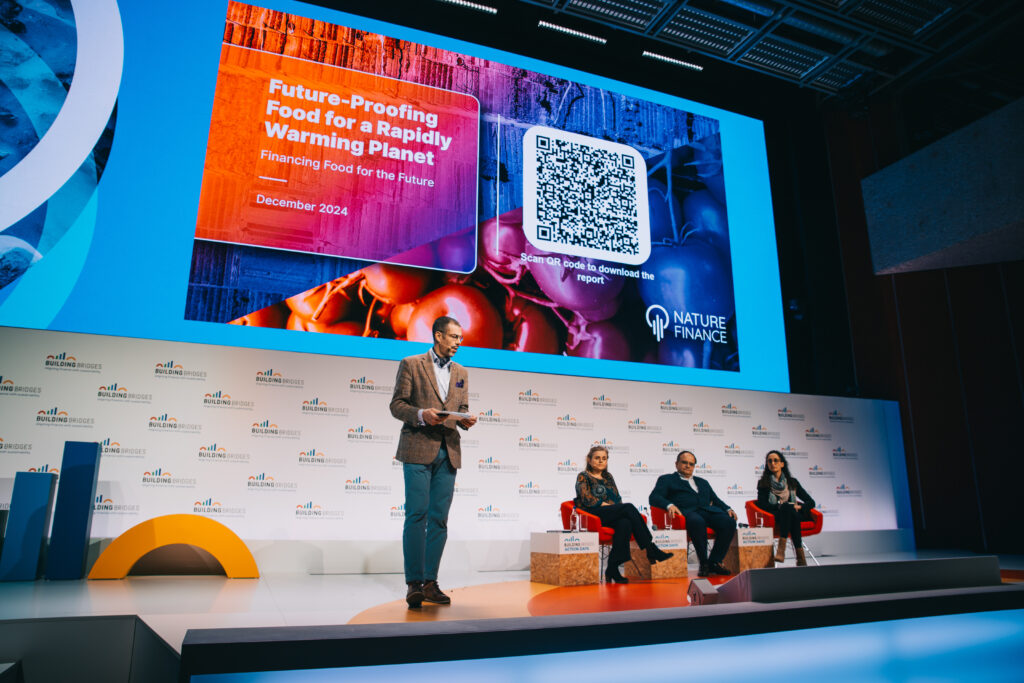
EVENT 3 – The G20 Initiative on the Bioeconomy and the Bridge to COP30 (co-hosted with ANCA and Itaúsa)
The bioeconomy offers a transformative opportunity to realign global financial systems with nature-positive principles. Today’s global bioeconomy is estimated to be valued at US$4 trillion, with growth potential to US$30 trillion in a couple of decades.. The session co-hosted by ANCA, Itaúsa and NatureFinance explored how international collaboration through the G20 and COP30 can advance sustainable development goals and turn the vision of an equitable, sustainable bioeconomy into a reality.
During their G20 presidency, Brazil’s G20 Initiative on the Bioeconomy (GIB) established high-level principles to help finance and scale a bioeconomy that produces nature-positive and equitable outcomes. With decades of experience in the bioeconomy, South Africa is well-positioned to carry this work forward into their G20 presidency, which began in December 2024.
Key takeaways:
1) Lessons learnt from the success of the Brazil’s presidency indicate the need for collaboration across the private sector, financial industry, academia and civil society, cross-cutting support from different government ministries and listening to the peers of the G20.
2) As Brazil hands over the presidency to South Africa, leadership across G20 countries must be leveraged to speed up and scale the advancement of a regenerative global bioeconomy.
3) The bioeconomy must be designed in line with sustainability principles to ensure inclusive and nature-positive outcomes, and to not exacerbate existing inequalities.
“We must transition our economy towards a bioeconomy that is positive for climate, nature and people but we need to do that with actual concrete projects on the ground that can generate jobs and income addressing equity challenges” – Marcelo Furtado, Head of Sustainability Itausa, NatureFinance Principal
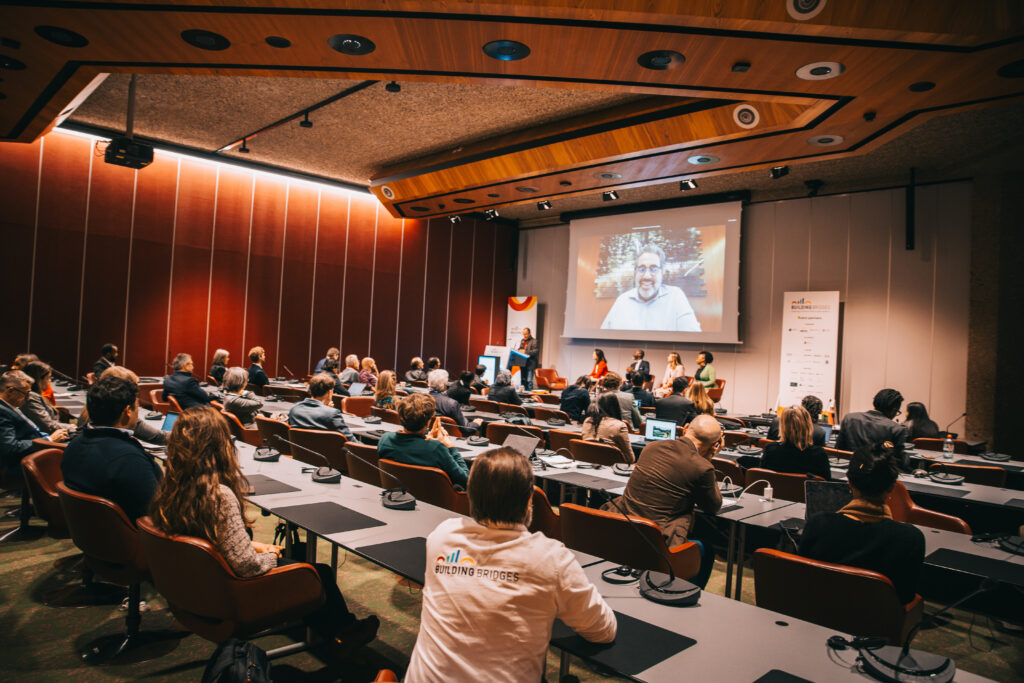
Building Bridges 2024: A Moment for Reflection and Gratitude
Beyond the conference sessions, NatureFinance hosted a small, informal dinner to celebrate achievements, reflect on 2024, and discuss the year ahead. Julie McCarthy, NatureFinance’s new CEO, shared her gratitude for the work accomplished in 2024 and outlined her vision for advancing the nature finance agenda in the year to come. She also took a moment to thank Simon Zadek, former CEO and her co-leader during the transition, for his pivotal contributions to NatureFinance and the broader nature-positive finance movement.
Simon, now a senior advisor at NatureFinance, highlighted Switzerland’s leadership in mobilising investments for nature-positive and bioeconomy initiatives through the newly launched Swiss Global Hub on Nature Finance. The evening underscored the shared commitment and collective drive of the many individuals and organisations who are needed to meet the pressing challenges ahead.

Looking Ahead: Building Bridges 2024 and Beyond
As the fifth edition of Building Bridges drew to a close, it was evident that the discussions and collaborations during the week laid a strong foundation for future action. The urgency to realign global finance with nature-positive and equitable outcomes is well understood.
As we reflect on the progress made in 2024, NatureFinance reaffirms its commitment to driving systemic change through groundbreaking initiatives, innovative frameworks, and impactful partnerships.
All photos taken by Joanna O’Malley. For further information on NatureFinance at Building Bridges, please contact joanna.omalley@naturefinance.net

